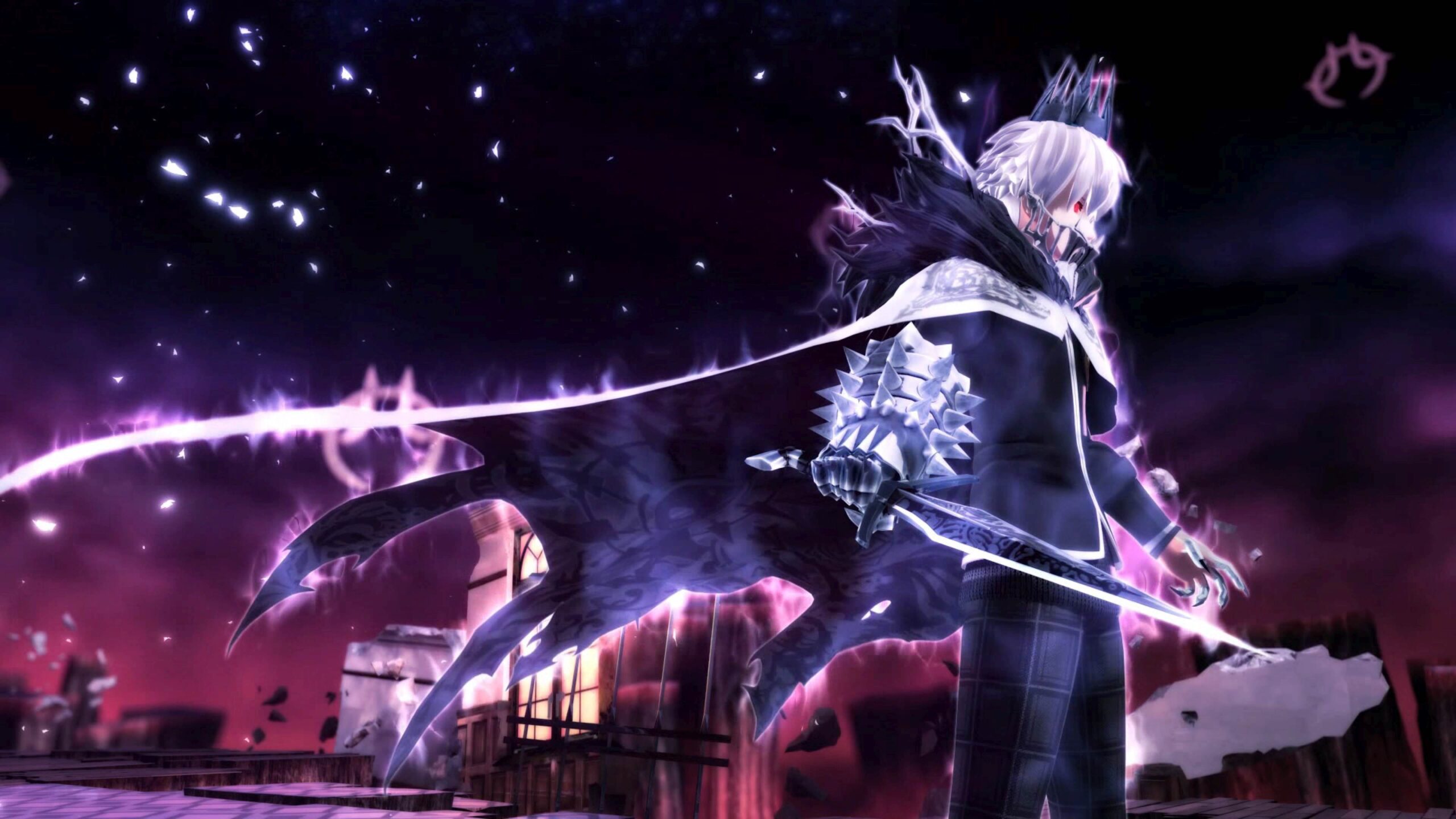Biting personality quizzes, but tons of repetition
I’ve hit a bit of a wall in Monark. I know I’m about to walk into a new story beat, which means new characters, stories, and probing questions about my desires. Moving ahead means a new antagonist to fight, more puzzles to solve, and even another fresh track to score the chapter’s boss fight, which has been pretty compelling so far.
Progress in Monark also means setting aside time to grind out battles, in a series of arenas that do little to differentiate themselves, and writing that varies from introspective and thoughtful to bizarre twists and tired tropes.
Monark is a game with some really good ideas, and some less than good ones. And from the little-over 20 hours I’ve played so far, I’m not sure the former can overtake the latter.
Monark (PC, PS4, PS5 [reviewed], Switch)
Developer: FuRyu
Publisher: NIS America
Released: Feb. 22, 2022
MSRP: $59.99
The set-up of Monark is that you, a student at Shin Mikado Academy in Japan, have woken up in a terrible haze. There’s a magical barrier around the school, a fog is driving the students and faculty mad, and random bouts of violence are occurring across the grounds.
It’s not long until you’re tossed into the Otherworld, a ghoulish shadow realm, and beset by fiends. A devilish demon named Vanitas appears and offers you a deal: become a Pactbearer, and gain the power to defend your friends and fight back.
Monark‘s initial set-up works well, and the world that FuRyu has created is a pretty compelling one. As you team up with your little sister and the former student council president, you learn that the mists driving everyone crazy stem from other Pactbearers. A pact is essentially a deal with the devil, and the Pactbearer’s Wish—what they want to do with their newfound power—is made physical in the Otherworld, as three Ideals that perpetuate the mist. Destroy their Ideals, and you both dissipate the mist and learn more about their own Wish, and why they succumbed to the sins.
Yes, the “seven deadly sins” play a large role in this game. They’re both the theming for the Pactbearers and form a heptagonal chart, showcasing your own desires and predispositions. Monark chucks personality quizzes at you throughout the game, ranging from one-off hypotheticals to choose-your-own-adventure-style stories and long interrogations, each one noting what you’ve chosen. Maybe your Wrath climbs higher because you acted in vengeance, or Gluttony expands because of your desire to take someone’s power for your own.
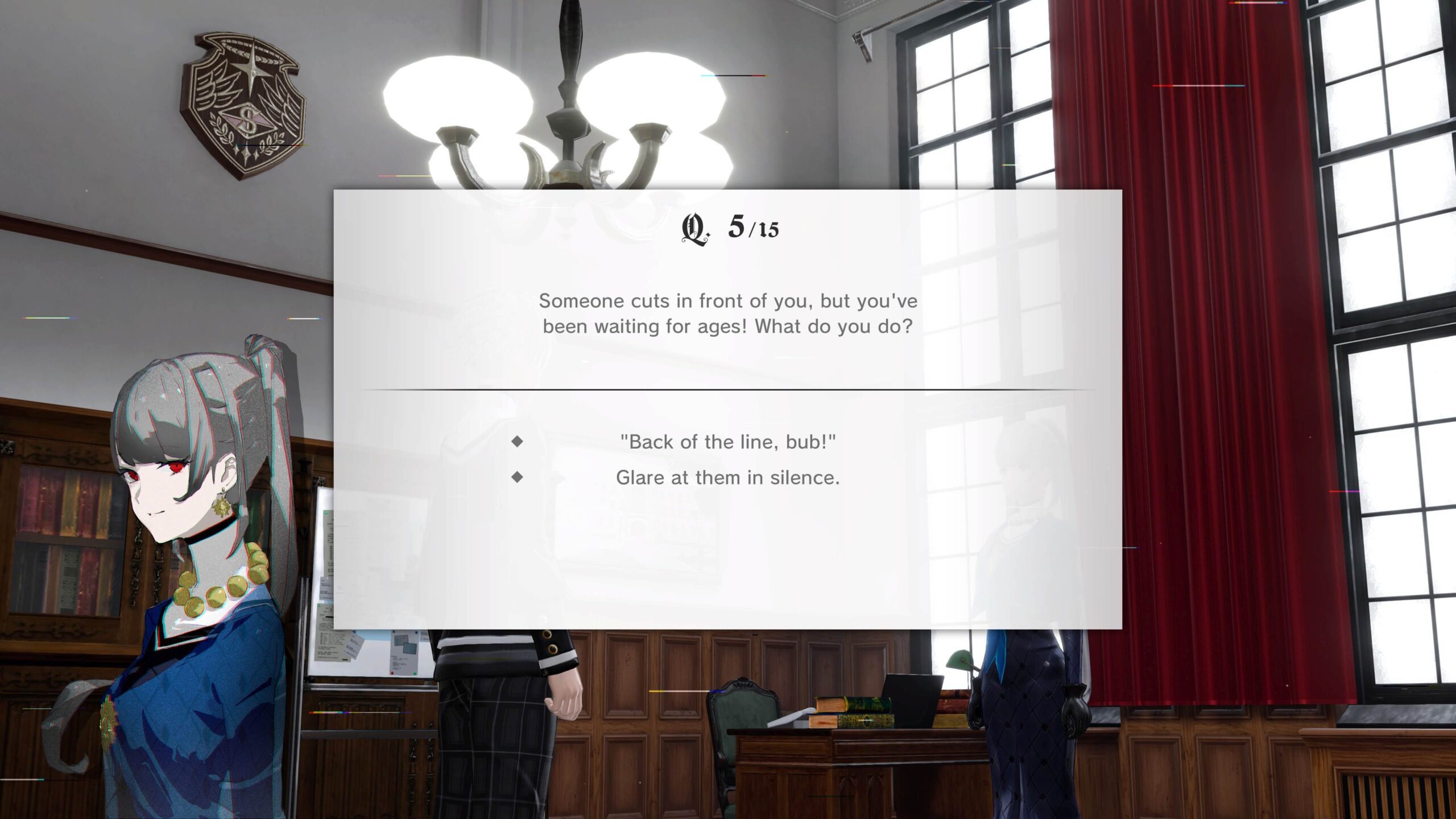
These aspects are where Monark shines brightest, offering a pretty refreshing take on the normal life-management side of an RPG. Rather than investing time in building up certain numbers by hitting the gym or working a side-job, I was interrogating what my vices are; or even, what I might want them to be. A higher Lust score might unlock a special gem that gives stats to all my characters, so I might start to act more Lustful in turn. Monark encourages you to be selfish and own your desires, and does a pretty good job of it.
Once the battles start, things get a little murkier. Your party is composed of the protagonist, usually a companion character who’s central to your current chapter, and several fiends that embody some of your own sins.
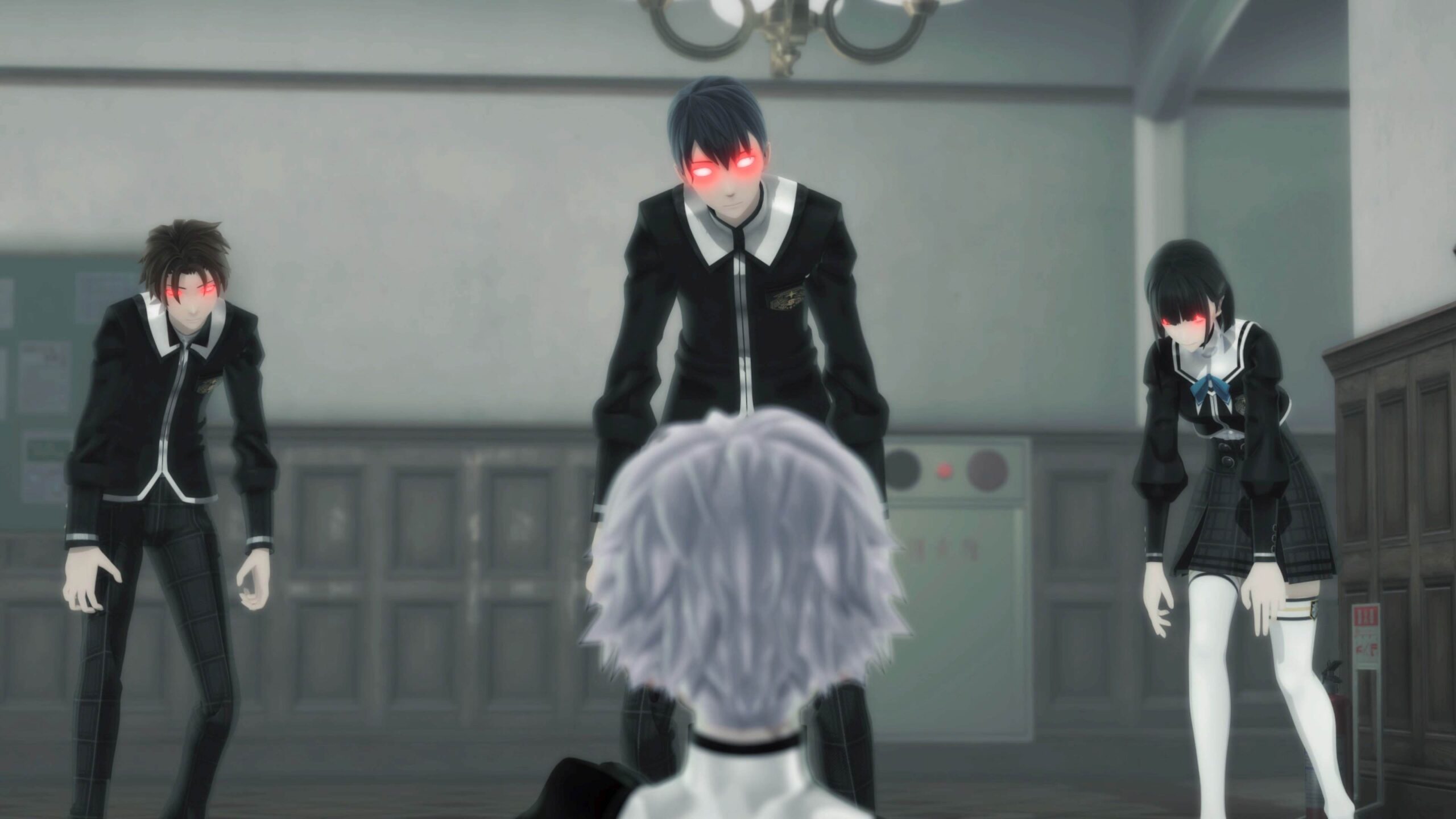
Both the companions and fiends use the sin set-up in interesting ways: the Gluttony character can sap stats to bolster their own, while the Pride character can heal, and the Sloth fighters can wear down movement. Your own Pactbearer power isn’t one of the seven, but rather, of Vanity. This means you can Resonate with other users, sharing buffs and debuffs, status effects, and even access to abilities.
Each turn you move, determined by a freeform circular radius around you, and then either attack, wait, use an item, or Defer to another character, offering them another action if they’ve already gone. Extra moves aren’t free, though. Deferrals, as well as certain actions, raise your Madness. Hit 100%, and your character will go berserk, attacking whoever they can with heightened potency before collapsing.
On the flip side, you can concentrate and focus your power, increasing your Awakening gauge to reach an empowered state with access to a super move. Or even mix both, hitting 100% Madness and Awakening at the same time to become Enlightened; I’ve only managed it once, but it led to my protagonist sweeping his way across the board.
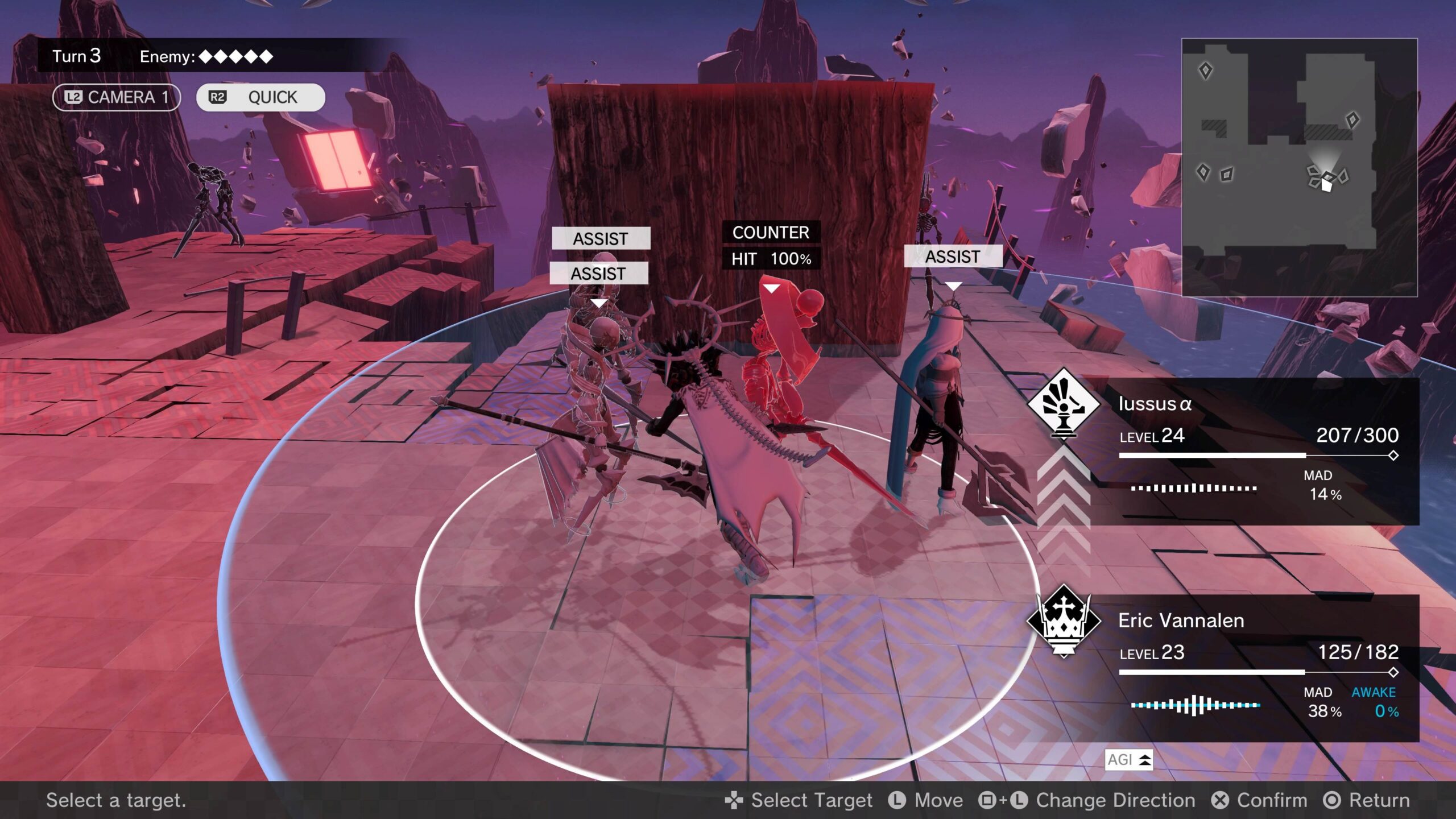
Monark is dense, layering on a lot of systems that can intersect between battles and the overworld. The mist gradually boosts your Madness as you wander around in it, solving some pretty solid puzzles to progress towards new Ideals. It might seem bad, but maybe your strategy for a boss revolves around a certain move that increases in power the more Mad you are. Or maybe you know you need some higher Wrath to unlock an overworld gem, so you grind some battles in a Wrath arena to get extra points.
Its systems are conceptually interesting, but in practice end up feeling very repetitive. Most strategies so far have boiled down to positioning all my units and Deferring over and over to give my protagonist extra moves. Alternate strategies likely exist, but the rotating roster of companions means I’m never spending more than one arc with them so far, so I can’t hinge any long-term plans around their progression.
Upgrades are also costly, as Spirit—the currency for buying items and upgrading your powers—is in high demand. The required amount to keep progressing jumps up fast at different points in each character’s skill tree, and unlocking new abilities is how you level up and boost your other stats for attacking, defending, evasion, and more. Spirit itself can take a while to build up too; one upgrade at my current stage could run about 2,000, and I’m bringing in anywhere from 400 to 700 a map, depending on whether Monark gives me a decent number of enemies to fight or not.
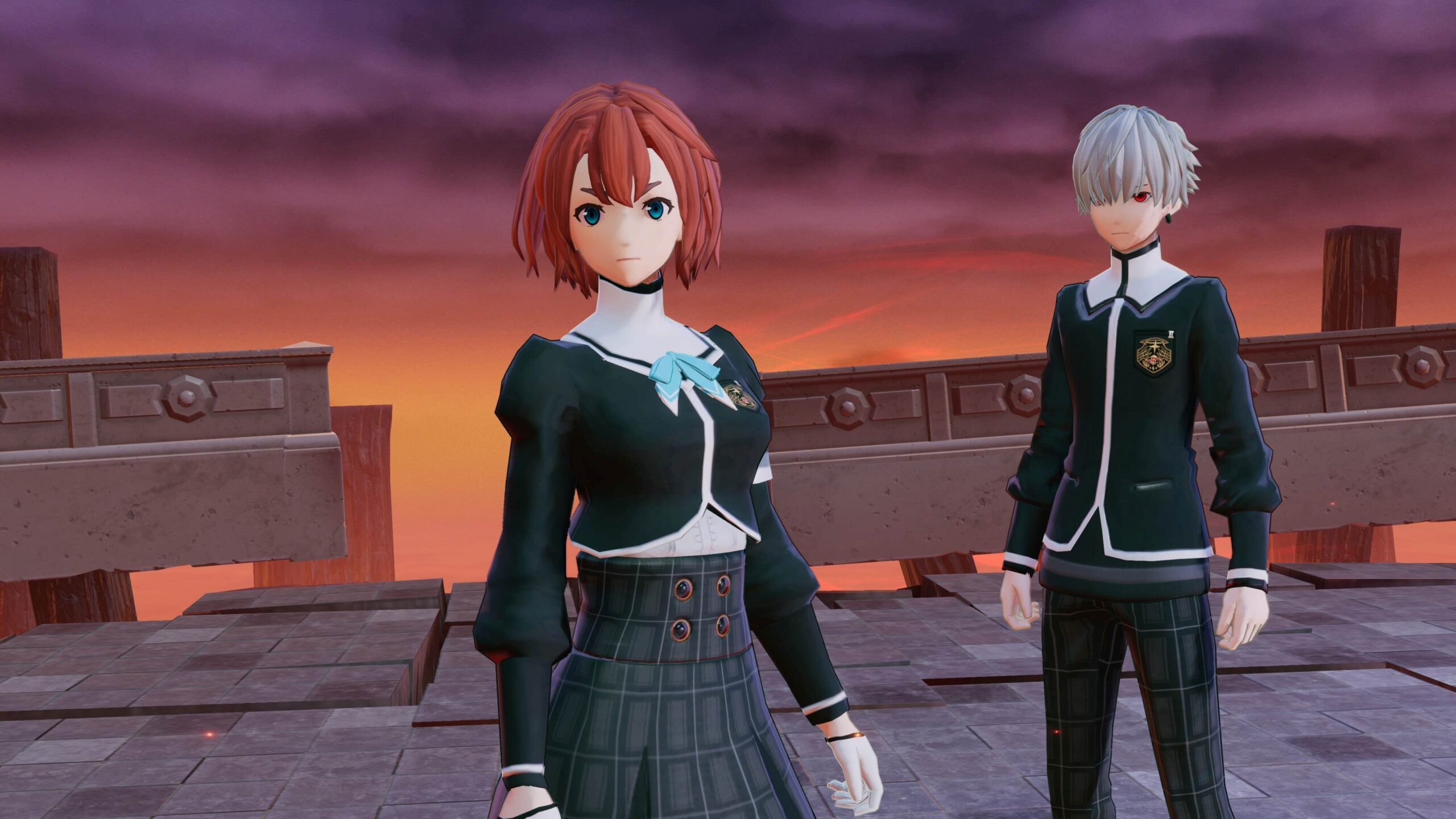
This equates to a lot of grinding. For each of the major story beats in the first Act, I’ve had to set aside time to just run the same map over and over, grinding Spirit until I’m strong enough to handle the final boss, which is usually a good step up from the average battle. It’s been a lot of auto-pilot, inputting the same movements over and over. The upside is it’s made for good background action while I’m listening to podcasts.
It’s also meant that while there are some cool options, they start to feel superfluous. I’m scrolling past most of the abilities in my lineup for better options. And the enemies I’m fighting aren’t varied enough yet to ask for a deeper strategy. They’ve started to show a few interesting abilities, like a teleport-strike that lets them move quickly across the field. But outside the occasional status effect throwing a wrench into the works, it’s mostly been a game of hitting each other back and forth.

Battles aren’t very visually appealing, either. The Otherworld looks cool, but each map is constructed with a few walls and environmental hazards, with enemies randomly strewn about. I haven’t found a map yet where the terrain felt like a crucial factor in the fight. For the most part, it’s just a way to break up individual segments of enemies and form chokepoints. They also all have the same look, whether it’s the basic battle I’m grinding through 15 times in a row for Spirit or a big boss battle. Special music tracks play during the latter, however, and those are very, very good.
While Monark‘s world is interesting, I also feel like its actual story is falling flat for me. Part of this is the story content itself. Most characters have a few interesting notes, like the reason they became a Pactbearer in the first place. And Shin Mikado is not a pristine school; it’s not quite Euphoria, but issues of bullying, relationship drama, and more pop up throughout the story. These should be more interesting, but often fall by the wayside and get fairly brushed-off resolutions.
It also doesn’t help that Monark stops you for conversations and cutscenes way too often. The time between ventures into the mist to shatter Ideals is littered with side conversations. These often happen in a row, with you still having to walk between them. It’s a lot of stop, chat, walk, stop, chat, walk, etc. And many of the conversations simply recite themes you’ve heard once before. All this, while walking through the same hallways that look way too similar over time, and Monark starts to feel weighed down by over-repetition.
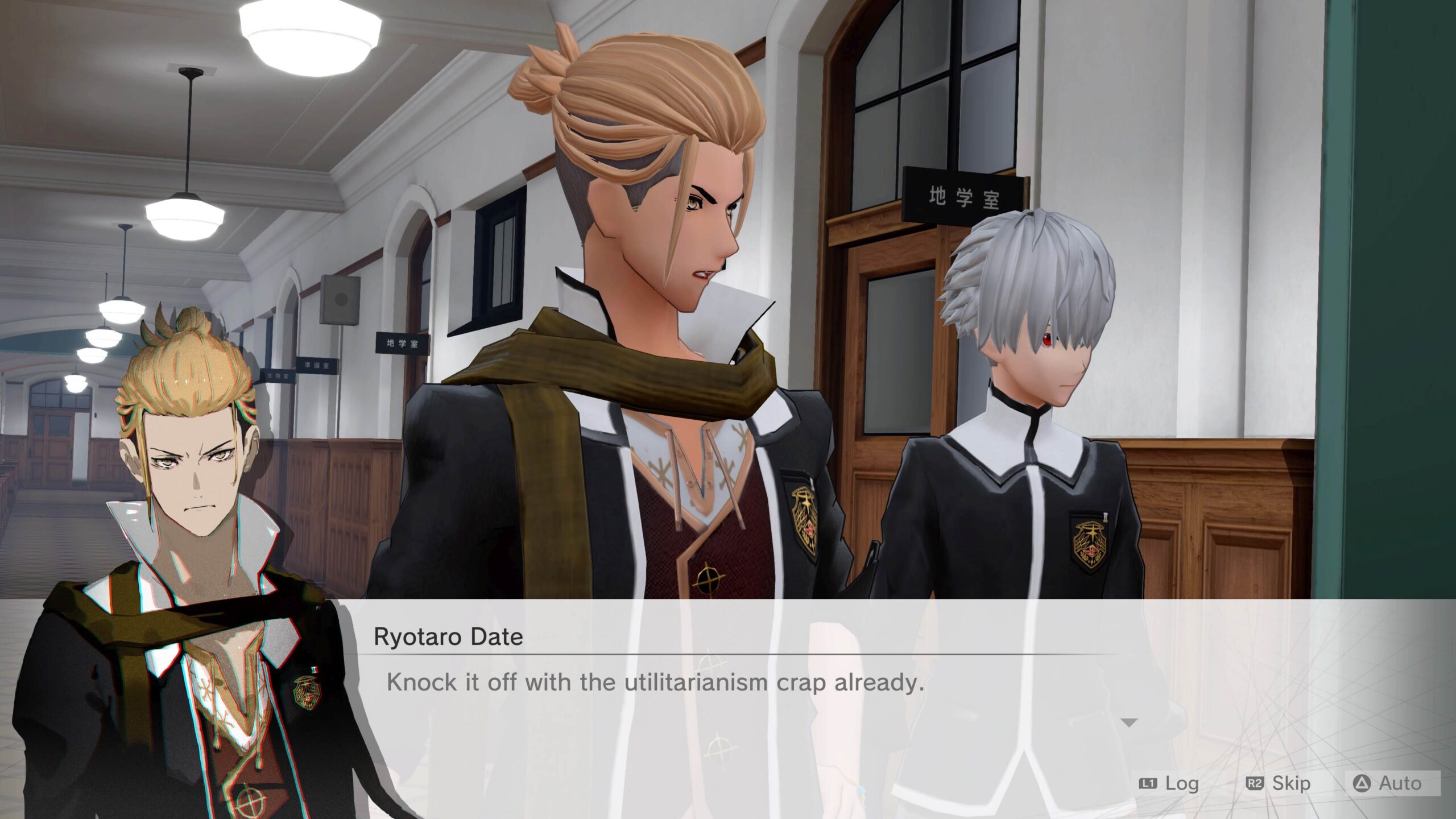
Monark is a real conundrum, because I can see where it could click together into something much more interesting. Its systems might be a bit over-designed, but they’re interesting and, every now and then, result in some big moments of tactical genius. It weaves its sinful nature in and out of the story in interesting ways, and I love the idea of turning my personality quiz results into the mechanical characteristics of my protagonist. And the setting is really cool, combining aspects of school-life and demon-battling RPGs into a world I enjoy.
A penchant for grinding and repetition weighs on Monark, though. I have to do the less-interesting parts to get myself ready for the interesting parts a little too often. And while the world is intriguing, its characters and stories have yet to hook me in the same way. I’m intrigued to see it through, if only because I’m hopeful Monark can rally and really bring it all together in the final moments. But the gut feeling I have is that getting there will feel like an uphill climb, and that’s not a good omen.
[These impressions are based on a retail build of the game provided by the publisher.]
